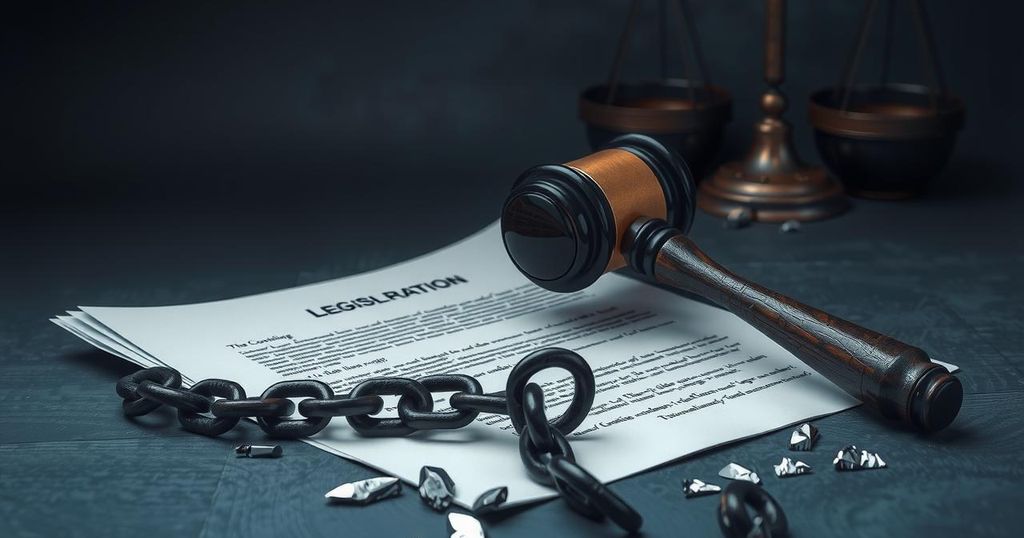Peru Enacts Controversial Law Restricting Non-Governmental Organizations
Peru’s Congress passed a contentious law restricting NGOs, limiting their ability to challenge the government on human rights issues. Critics argue the law undermines justice and targets those advocating for human rights. Proponents claim it enhances transparency. The government has two weeks to decide on the legislation’s enactment.
On March 13, 2025, Peru’s Congress enacted a controversial reform to its international cooperation law, which is attracting significant criticism from rights groups. This legislation imposes extensive restrictions on non-governmental organizations (NGOs), notably barring them from initiating legal action against the state for human rights violations. Critics, particularly those associated with human rights advocacy, have condemned the move as detrimental to civil society’s ability to function effectively.
Key provisions of the law categorize actions such as advising, assisting, or financing lawsuits against the government as a “serious offense,” thereby imposing severe limitations on civil society organizations. Furthermore, the legislation increases the scrutiny of funding sources from abroad for NGOs, raising concerns about operational freedom in the face of foreign assistance.
In response, multiple rights organizations have expressed their alarm over this legislative shift. Promsex, an NGO dedicated to women’s rights, articulated a strong opposition, stating, “We reject this law, which hinders access to justice and perpetuates impunity.” Similarly, the Legal Defense Institute has asserted that the new framework represents a profound violation of fundamental legal protections for individuals. They posited that the underlying motivation of this law is to suppress NGOs and silence advocacy for human rights. Additionally, the Press and Society Institute has drawn parallels between this law and similar oppressive legislations imposed by authoritarian regimes across Latin America.
While the legislation has met widespread backlash, proponents claim that it enhances transparency in NGO operations. Right-wing congressman Alejandro Munante criticized NGOs for lacking accountability, alleging that they evade taxation and manipulate the political landscape in Peru. The government now has a two-week window to either enact this law or return it to Congress with suggested amendments.
The recent passage of the law in Peru has raised significant concerns among rights groups, who view it as an obstruction to justice and human rights advocacy. Striking a balance between governance and the rights of civil society remains crucial, as the repercussions of this legislation could hinder both transparency and accountability. As the situation develops, the government’s actions in response to the criticisms will warrant close observation.
Original Source: www.dw.com




Post Comment